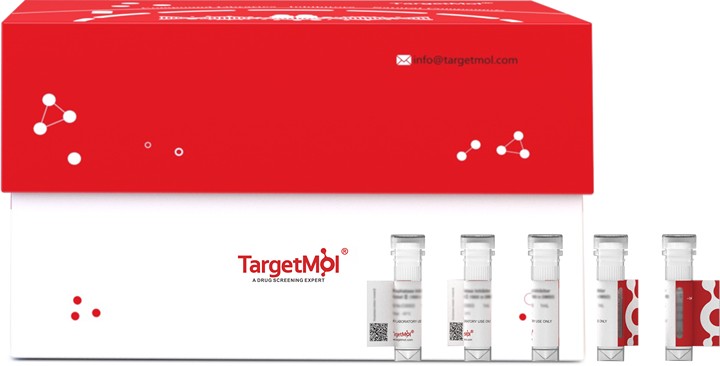- Remove All
 Your shopping cart is currently empty
Your shopping cart is currently empty
IL-1 alpha/IL-1A Protein, Human, Recombinant (E. coli)
IL-1 alpha is a member of the interleukin 1 cytokine family. Cytokines are proteinaceous signaling compounds that are major mediators of the immune response. They control many different cellular functions including proliferation, differentiation, and cell survival/apoptosis but are also involved in several pathophysiological processes including viral infections and autoimmune diseases. Cytokines are synthesized under various stimuli by a variety of cells of both the innate (monocytes, macrophages, dendritic cells) and adaptive (T- and B-cells) immune systems. Cytokines can be classified into two groups: pro- and anti-inflammatory. Pro-inflammatory cytokines, including IFNgamma, IL-1, IL-6, and TNF-alpha, are predominantly derived from the innate immune cells and Th1 cells. Anti-inflammatory cytokines, including IL-10, IL-4, IL-13, and IL-5, are synthesized from Th2 immune cells. IL-1 alpha is a pleiotropic cytokine involved in various immune responses, inflammatory processes, and hematopoiesis. It is produced by monocytes and macrophages as a proprotein, which is proteolytically processed and released in response to cell injury, and thus induces apoptosis. IL-1 alpha stimulates thymocyte proliferation by inducing IL-2 release, B-cell maturation and proliferation, and fibroblast growth factor activity.

IL-1 alpha/IL-1A Protein, Human, Recombinant (E. coli)
| Pack Size | Price | Availability | Quantity |
|---|---|---|---|
| 20 μg | $157 | In Stock | |
| 100 μg | $397 | 7-10 days | |
| 200 μg | $700 | 7-10 days | |
| 500 μg | $1,480 | 7-10 days |
Product Information
| Biological Activity | Measured by its ability to induce Interferon gamma secretion by human natural killer lymphoma NK-92 cells. The ED50 for this effect is typically 0.5-3 ng/mL. |
| Description | IL-1 alpha is a member of the interleukin 1 cytokine family. Cytokines are proteinaceous signaling compounds that are major mediators of the immune response. They control many different cellular functions including proliferation, differentiation, and cell survival/apoptosis but are also involved in several pathophysiological processes including viral infections and autoimmune diseases. Cytokines are synthesized under various stimuli by a variety of cells of both the innate (monocytes, macrophages, dendritic cells) and adaptive (T- and B-cells) immune systems. Cytokines can be classified into two groups: pro- and anti-inflammatory. Pro-inflammatory cytokines, including IFNgamma, IL-1, IL-6, and TNF-alpha, are predominantly derived from the innate immune cells and Th1 cells. Anti-inflammatory cytokines, including IL-10, IL-4, IL-13, and IL-5, are synthesized from Th2 immune cells. IL-1 alpha is a pleiotropic cytokine involved in various immune responses, inflammatory processes, and hematopoiesis. It is produced by monocytes and macrophages as a proprotein, which is proteolytically processed and released in response to cell injury, and thus induces apoptosis. IL-1 alpha stimulates thymocyte proliferation by inducing IL-2 release, B-cell maturation and proliferation, and fibroblast growth factor activity. |
| Species | Human |
| Expression System | E. coli |
| Tag | Tag Free |
| Accession Number | P01583 |
| Synonyms | interleukin 1 α,interleukin 1 alpha,IL1-α,IL-1F1,IL1F1,IL1-ALPHA,IL-1A,IL-1 α/IL1A,IL1 |
| Construction | A DNA sequence encoding the human IL1A (P01583) (Ser113-Ala271) was expressed. |
| Protein Purity | > 95 % as determined by SDS-PAGE. |
| Molecular Weight | The recombinant human IL1A consists 159 amino acids and predicts a molecular mass of 18.05 kDa. |
| Endotoxin | Please contact us for more information. |
| Formulation | Lyophilized from a solution filtered through a 0.22 μm filter, containing PBS, pH 7.4. Typically, a mixture containing 5% to 8% trehalose, mannitol, and 0.01% Tween 80 is incorporated as a protective agent before lyophilization. |
| Reconstitution | A Certificate of Analysis (CoA) containing reconstitution instructions is included with the products. Please refer to the CoA for detailed information. |
| Stability & Storage | It is recommended to store recombinant proteins at -20°C to -80°C for future use. Lyophilized powders can be stably stored for over 12 months, while liquid products can be stored for 6-12 months at -80°C. For reconstituted protein solutions, the solution can be stored at -20°C to -80°C for at least 3 months. Please avoid multiple freeze-thaw cycles and store products in aliquots. |
| Shipping | In general, Lyophilized powders are shipping with blue ice. |
| Research Background | IL-1 alpha is a member of the interleukin 1 cytokine family. Cytokines are proteinaceous signaling compounds that are major mediators of the immune response. They control many different cellular functions including proliferation, differentiation, and cell survival/apoptosis but are also involved in several pathophysiological processes including viral infections and autoimmune diseases. Cytokines are synthesized under various stimuli by a variety of cells of both the innate (monocytes, macrophages, dendritic cells) and adaptive (T- and B-cells) immune systems. Cytokines can be classified into two groups: pro- and anti-inflammatory. Pro-inflammatory cytokines, including IFNgamma, IL-1, IL-6, and TNF-alpha, are predominantly derived from the innate immune cells and Th1 cells. Anti-inflammatory cytokines, including IL-10, IL-4, IL-13, and IL-5, are synthesized from Th2 immune cells. IL-1 alpha is a pleiotropic cytokine involved in various immune responses, inflammatory processes, and hematopoiesis. It is produced by monocytes and macrophages as a proprotein, which is proteolytically processed and released in response to cell injury, and thus induces apoptosis. IL-1 alpha stimulates thymocyte proliferation by inducing IL-2 release, B-cell maturation and proliferation, and fibroblast growth factor activity. |
Dose Conversion
Calculator
Tech Support

Copyright © 2015-2025 TargetMol Chemicals Inc. All Rights Reserved.


